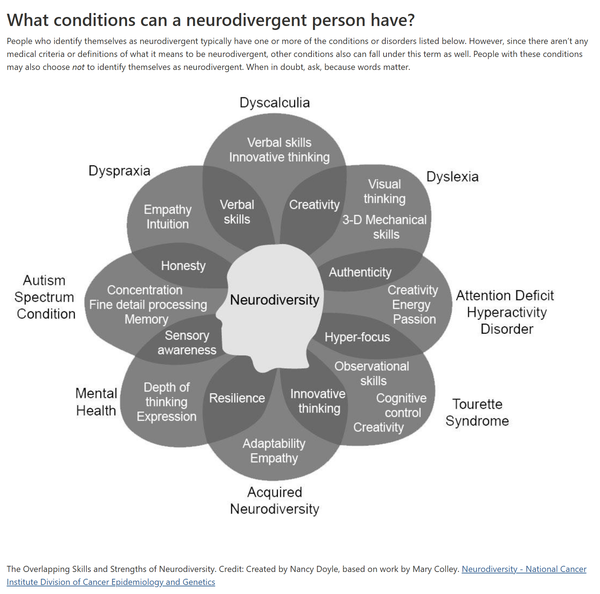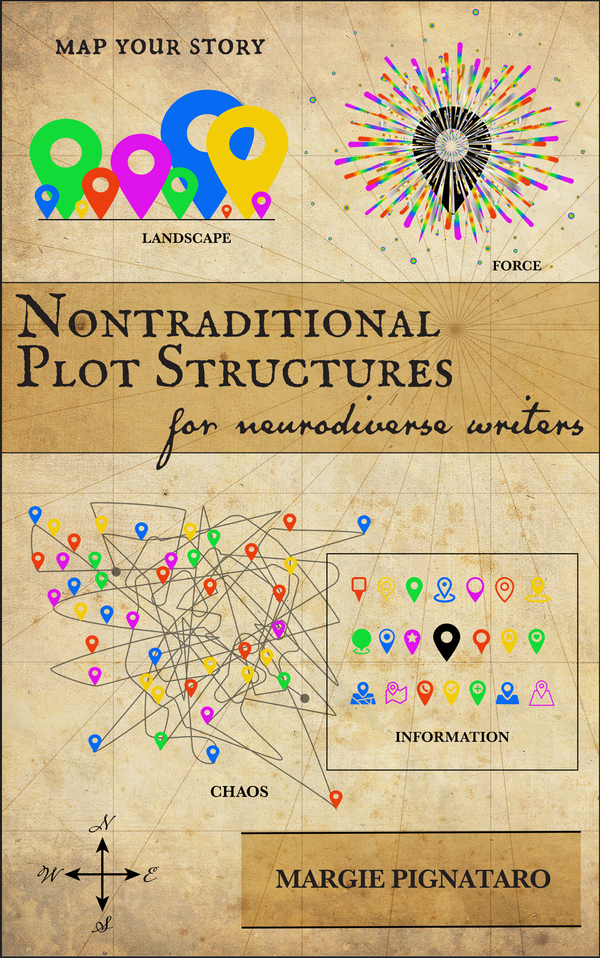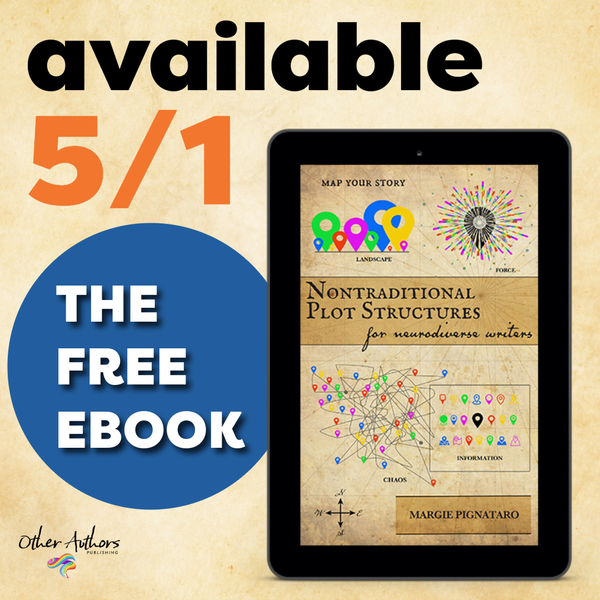#ADHD #actuallyautistic #auDHD At the beginning of the year, at the age of 49, I was diagnosed auDHD and I haven't talked about it.
I'm one of many women diagnosed late in life. We were also misdiagnosed for many, many years. For me, it began at 20, with a diagnosis of major or clinical depression, bits of OCD, PMD, an eating disorder, and an anxiety disorder.
I didn't go on meds until my 30s, when my therapist (one of many throughout my life), told me I couldn't think clearly without them. Meds were transformative for me. I went on three anti-depressants, and a mood stabilizer. I hadn't any clue what depression really felt like until it was gone.
The meds weren't enough, of course. I was drinking whenever I had time. I had always drank a lot, but now my drunk self was manic as fuck.
Alcohol always made living easier. In Tennessee Williams's Cat on a Hot Tin Roof, Brick described attaining inebriation as a hot light going off and a cool one going on. That is exactly what it felt like. I became relaxed and comfortable. It made social events, particularly theater parties, easy and fun. I had no fears and acted upon this distorted brain chemistry.
The anti-depressants weren't working long term. I was still depressed and anxious, my eating becoming odd and disordered, and participated in other actions that startled my doctor. She was the first to suggest I was bipolar.
I should say at this point that I also had undiagnosed PTSD and was in a marriage that did much more harm to my mental health than good. Neither of these things came up in therapy.
Quite a lot never came up in therapy.
My first psychiatrist was an older man in a tiny town in East Texas. On my first visit he asked me a bunch of questions and determined by the end that I was bipolar 2. He prescribed lithium and tweaked my current drug cocktail by removing one of my anti-depressants.
He advised me to keep this diagnosis to myself. If people knew, they'd think I was just like one of those crazy women who drowns her kids in a lake.
After leaving his office, I told everyone I knew. I was not going to hide in shame.
Several years later, divorced and remarried, and living in various countries and cities, my symptoms were chaotic. I couldn't sleep at night. I would deep dive worse than ever. I became agoraphobic, starved myself, cried daily, and had panic attacks when I hadn't before. I couldn't work, but I could write hundreds of words per day and some of the most fucked up shit I've ever written.
My new husband and I finally settled in Las Vegas and were stable long enough for me to get a therapist.
At first, I had two therapists I saw simultaneously. The second therapist only did EMDR. It was a harrowing, brutal year. My PTSD became defined and addressed. I finally had to quit both because I would feel ill for days after my sessions. (I saw them back-to-back on the same day.)
Another therapist followed. He was great, but I had panic attacks before sessions, often canceling at the last minute. My trauma became better identified, but giant facets of it went unnoticed. He did teach me fabulous tools to help calm me during intense situations.
After him, I begged my husband, sobbing, not to see another therapist. I felt gutted and raw and scraped deeply. I felt defenseless and exposed. I felt manipulated, tested, and mocked by therapists. Because I was having no progress.
At this point, I had seen a total of 9 therapists over more than 30 years.
Another year went by and my symptoms ran amok. I was too afraid not to see a therapist. I found a new therapist online. At first we communicated only through text messages. When I began to trust her, we talked on the phone. This was a revolution for me; having to face a therapist and make eye contact was painful, awkward, and left me feeling too vulnerable to feel comfortable.
But my therapist changed everything for me. Everything. It wasn't only that I trusted her.
She asked one question that opened the neurodivergent door: "Could your father have had autism?"
We had been talking about my father in general terms: his restricted and small wardrobe, his tight and rigid schedule, his career as an aerospace engineer, and many other things. I asked her what she meant, what about him would be considered autistic. She gave me a list of characteristics that fit him perfectly. When she was done, not only was I convinced my father and my brother were autistic, I must be as well.
I did research. I took online tests. Everything indicated autism. I've always had trouble making friends. I've never cared for conventional femininity. I was a tomboy, bisexual, cared only for writing and could deep dive easily into it for hours. I have trouble with food, loud sounds, crowds, and understanding spoken words. I walk on the edges of my feet. It is difficult for me to multitask and take directions verbally. I tear the tags out of shorts and cannot wear certain fabrics or colors because they're not comfortable. I anthropomorphize objects and feel numbers, equations, and symbols have full personalities. The list goes on and on.
It took several months to accept this possibility, then a few more to go through the testing phase. My results were level one autism (I would have Asperger's if I'd been tested several years ago) and combined ADHD.
This was the kick to my fucking gut. I had never considered ADHD for one minute. I was devastated. I felt like a failure, a terrible person, and a complete fuck up.
When I was a child, there were two things a child could be that made them the worst, pathetic creatures on earth: attention seeking and hyper.
If a kid was hyper, they were out of control, a massive annoyance, and deserved punishment until they calmed down. It was a personal choice to be hyper and reflected a weak character. They were not Good kids, but very Bad, trouble makers, and a Problem.
Kids who were hyper more often than not did it to seek attention. And a kid wanting attention was pathetic. A Good Kid could be entirely self-sufficient and never bother parents for anything. Bullies did what they did because they wanted attention. Physical violence was something used to get attention. My only recourse when bullied was to ignore them, no matter what. Acknowledging the violence was only giving bullies attention and what they wanted.
All of this came screaming back to me when I got my diagnosis. I had been a hyper child. The punishments I had would not be tolerated in today's world. (I was a child during the 80s.)
I don't hate my mother for everything she did to me, including not helping me. Therapists and meds were for truly insane people. Everyone else simply had to just endure it and be strong. And definitely never talk about it. I wasn't able to see a therapist until after she died.
I don't have the strength to hate anymore. I know she was fucked up and probably neurodivergent as well. Fuck her, though. I cannot forgive and I'm cool with that.
Learning I had ADHD forced me to process a very brutal early childhood, as my mother crushed me into a compliant, silent, and obedient kid.
Even today, though, discussing this for the first time, I still feel myself recoil at the thought of being hyper. I love all the attributes of being neurodivergent. I don't see myself as having superpowers; I see myself, my thinking in particular, as different. If I had the choice of being neurodivergent or neurotypical, I'd definitely pick neurodivergent. I really appreciate the unusual things my mind can do.
So the med situation, because I'm on things I probably don't need and need things I'm not taking. I've started an ADHD med and it's been startling.
Again, I never knew how difficult life felt until it became easy. I can sleep. I can sleep normally. I can do things. We're in the process of moving and not one thing has made me cry. (When we decided to move, pre-meds, I sobbed daily.) I was able to go to a taping of AEW and not panic from the crowds.
My husband and therapist are shocked. I'm shocked. It's obvious that probably the bulk of my depression and anxiety was coming from the crippling feelings of being entirely overwhelmed by simply existing.
I've started reducing my other meds, such as lithium. That's a great feeling, too.
This sounds like a happy ending, but I don't believe in endings. My meds aren't stable yet. There are things I haven't tried to do that I couldn't before. In 30 years, psychiatry may have a new set of labels that explain what's going on in me.
I certainly have heaps of PTSD to get through, but at least I don't have the constant screaming going on from auDHD.




